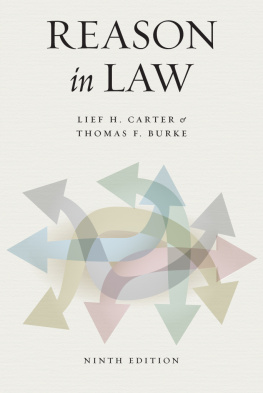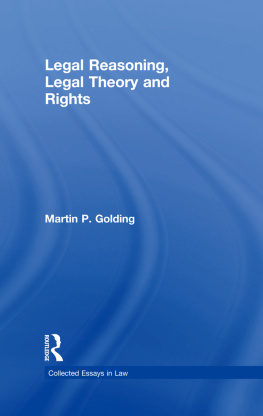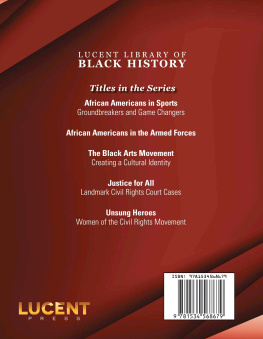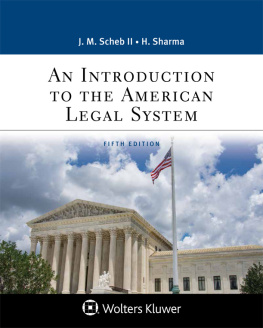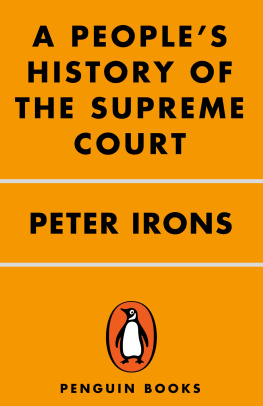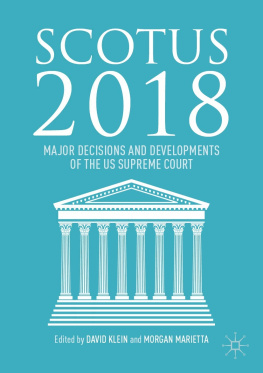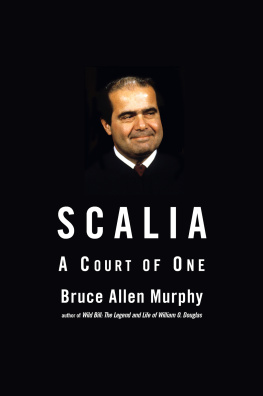Reason in Law
Reason in Law
9th Edition
Lief H. Carter and Thomas F. Burke
Foreword by Sanford Levinson
The University of Chicago Press
Chicago and London
Lief H. Carter is professor emeritus of political science at Colorado College. In addition to the previous eight editions of Reason in Law, he is the author of several books, including Administrative Law and Politics. Thomas F. Burke is professor of political science at Wellesley College and a visiting scholar at the University of California, Berkeley. He is the author or coauthor of three books, including, most recently, How Policy Shapes Politics.
The University of Chicago Press, Chicago 60637
The University of Chicago Press, Ltd., London
2016 by The University of Chicago
All rights reserved. Published 2016.
Printed in the United States of America
25 24 23 22 21 20 19 18 17 16 1 2 3 4 5
ISBN-13: 978-0-226-32804-1 (cloth)
ISBN-13: 978-0-226-32818-8 (paper)
ISBN-13: 978-0-226-32821-8 (e-book)
DOI: 10.7208/chicago/9780226328218.001.0001
Library of Congress Cataloging-in-Publication Data
Carter, Lief H., author.
Reason in law / Lief H. Carter and Thomas F. Burke ; foreword by Sanford Levinson. 9th edition.
pages cm
Includes index.
ISBN 978-0-226-32804-1 (cloth : alk. paper) ISBN 978-0-226-32818-8 (pbk. : alk. paper) ISBN 978-0-226-32821-8 (ebook) 1. LawUnited StatesMethodology. 2. LawUnited StatesInterpretation and construction. 3. LawPolitical aspectsUnited States. I. Burke, Thomas Frederick, author. II. Title.
KF380.C325 2016
340'.11dc23
2015018042
Earlier editions of this book were published by Pearson Education, Inc. Any questions concerning permissions should be directed to Permissions Department, The University of Chicago Press, Chicago, IL.
This paper meets the requirements of ANSI/NISO Z39.48-1992 (Permanence of Paper).
To Nancy, always
Lief Carter
To my father, Fred Burke, a man of uncommon kindness, generosity, and spirit
Tom Burke
I was much troubled in spirit, in my first years upon the bench, to find how trackless was the ocean on which I had embarked. I sought for certainty. I was oppressed and disheartened when I found that the quest for it was futile. I was trying to reach land, the solid land of fixed and settled rules, the paradise of a justice that would declare itself by tokens plainer and more commanding than its pale and glimmering reflections in my own mind and conscience.... As the years have gone by, and as I have reflected more and more upon the nature of the judicial process, I have become reconciled to the uncertainty, because I have grown to see it as inevitable. I have grown to see that the process in its highest reaches is not discovery, but creation; and that the doubts and misgivings, the hopes and fears, are part of the travail of mind, the pangs of death and the pangs of birth, in which principles that have served their day expire, and new principles are born.
What is it that I do when I decide a case? To what sources of information do I appeal for guidance? In what proportions do I permit them to contribute to the result? In what proportions ought they to contribute? If a precedent is applicable, when do I refuse to follow it? If no precedent is applicable, how do I reach the rule that will make a precedent for the future? If I am seeking logical consistency, the symmetry of the legal structure, how far shall I seek it? At what point shall the quest be halted by some discrepant custom, by some consideration of the social welfare, by my own or the common standards of justice and morals? Into that strange compound which is brewed daily in the caldron of the courts, all these ingredients enter in varying proportions. I am not concerned to inquire whether judges ought to be allowed to brew such a compound at all. I take judge-made law as one of the existing realities of life. There, before us, is the brew. Not a judge on the bench but has had a hand in the making.
Judge Benjamin N. Cardozo, The Nature of the Judicial Process
Contents
What Legal Reasoning Is and Why It Matters
Change and Stability in Legal Reasoning
Common Law
Statutory Interpretation
Interpreting the U.S. Constitution
Law and Politics
Introduction to Legal Procedures and Terminology
A Theory of Law in Politics: The Case of Terri Schiavo
I am pleased to write a few words about what is truly an outstanding book, Reason in Law. Although I am not a rigorous Darwinian, it nonetheless is worth noting that the very fact that you hold in your hand the ninth edition is a testament to its ability to surviveindeed, to flourishin a very competitive world. Most books suffer the sad fate immortalized in David Humes lament (which turned out to be false) that his books fell stillborn from the press. It is no small matter for a book to establish itself as a classic, which Reason in Law is, and to live unto the next generation.
Central to any explanation for its survival is that both Lief Carter and his more recent collaborator, Thomas Burke, have an ability to write with admirable clarity about complex issues in legal analysis. As a professor of law, I can vouch for the fact that they introduce central topics in an extraordinarily reader-friendly way. Whether one is interested in classic common law reasoning, statutory interpretation, or my own specialty, constitutional interpretation, there is much to savor in this slim book.
The authors clearly admire law as a means of dispute resolution that serves to preserve social peace and order. But, of course, commands issued by an all-powerful Hobbesian sovereign could serve this role. As suggested by the American author Ring Lardner, Shut up, he explained is an ever-present possibility when responding to someone dissatisfied with the way he or she is being treated. Every parent has taken refuge in such a posture, and every child no doubt has felt frustrated by the perceived failure to be taken seriously. One might suggest that much of the conflict between police and the subjects of policing is the perception by the latter that they are given insufficient reason to submit to police commands, coupled with the perception by the former that their authority is constantly being threatened. Carter and Burke know that shut up is indeed inadequate. Winners may be delighted simply to be told, You can do what youd like, but losers want to know why they have lost. Receiving an adequate answer is essential to believing that one is being treated with the proper concern and respect that political philosophers John Rawls and Ronald Dworkin have identified as the essence of a defensible political order.
Reason in Law is based on the assumption that someone actually reads judicial decisions, and that the quality of reasoning will assuage the feelings even of those who disagree with the outcomes. Who reads judicial opinions is, of course, an interesting question in itself. Carter and Burke appear to agree with political scientists like Gerald Rosenberg that members of the general public rarely read judicial decisions; the publics responses are far more likely to depend on the bottom-line resultand how that result is portrayed in the popular pressthan on the chain of legal reasoning supporting it. For better, and undoubtedly, for worse, one can be confident that very few Americans actually read various judicial decisions on such hot-button issues as the constitutionality of Obamacare or how to construe the Religious Freedom Restoration Act with regard to the duty of the state to exempt from the ordinary operation of the law those who claim inconsistent religious commitments. The authors admit that this is true as well with regard to the Terri Schiavo case, which is so carefully discussed in , culminating in the opinion by the obscure Judge Greer that is praised by the authors as a model of legal reasoning and, in their terms, legal game playing at its best. What one can be certain of, though, is that the lawyers involved in specific cases will surely read the opinions, and that it is particularly important that the losers in such cases feel at least somewhat less discontented after reading the Courts explanation of why they lost. Indeed, one function of lawyers in such instances is to assuage their clients anger by noting the strengths of the opinion. (Of course, this is a special difficulty for any lawyer who, by overestimating the strength of the case, leaves the client totally unprepared for loss.)

